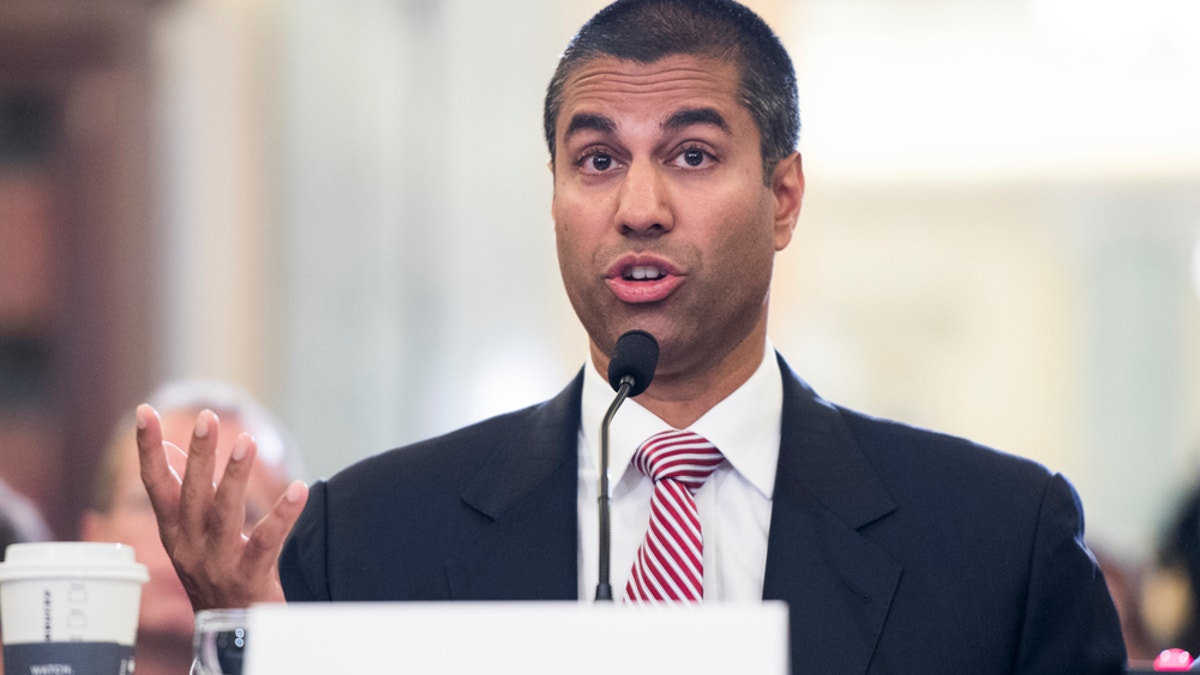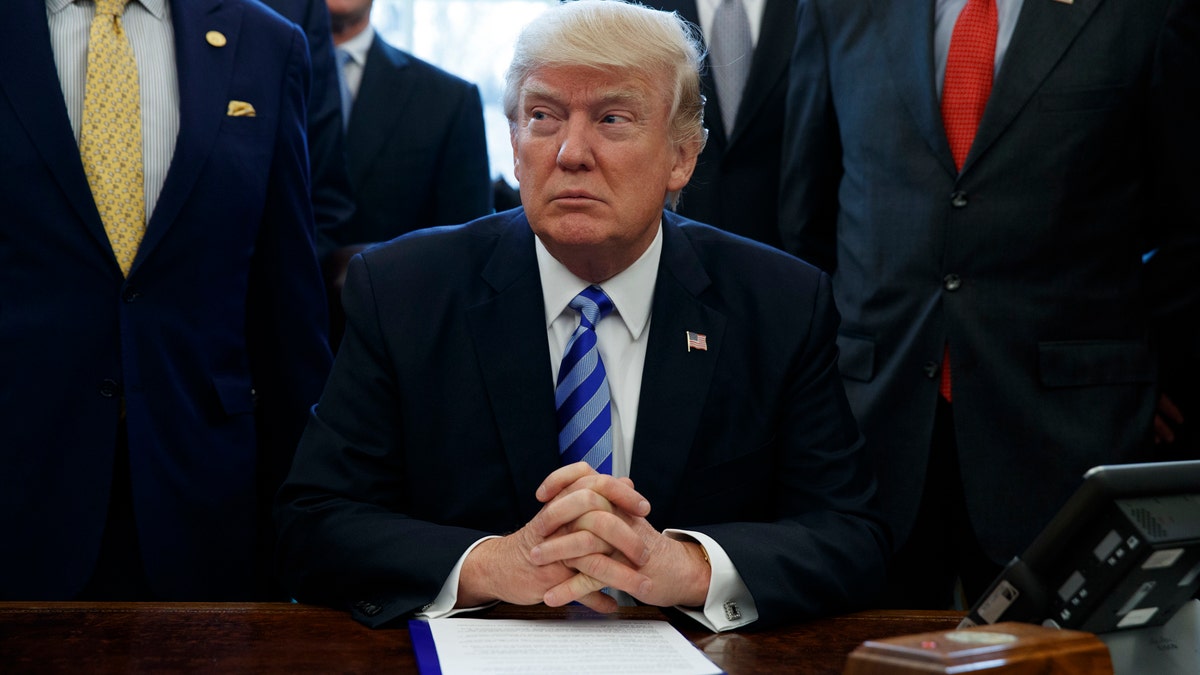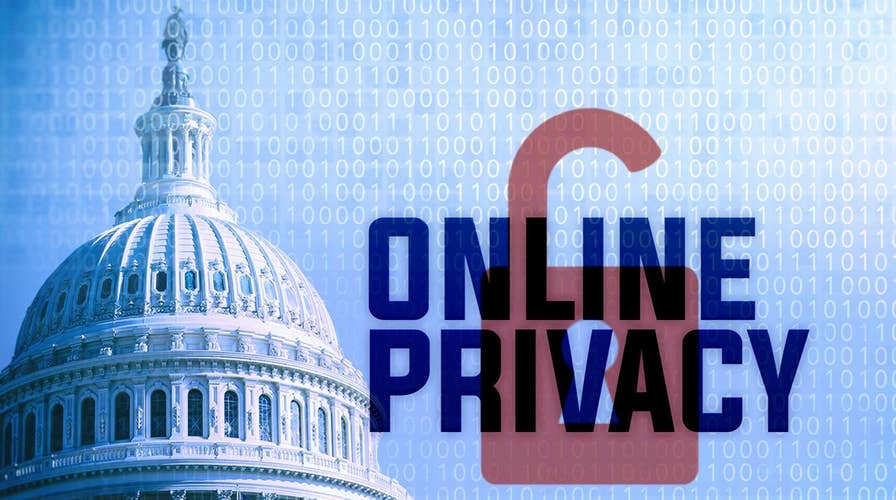Did Congress level the playing field for internet providers?
Gabriel Debenedetti, national political reporter for Politico, weighs in
A bill whose critics say could put people's private browser histories up for sale and hand Internet providers a lucrative victory awaits President Trump's signature after swift passage through the House and Senate.
The controversial resolution, which would overturn a host of Internet privacy protections enacted near the end of the Obama administration, would mean broadband providers can collect data on user’s online activities. But backers say the regulatory rollback of rules that had not yet taken effect merely puts Internet providers on the same level as search engines like Google.
“Congressional action to repeal the [Federal Communications Commission’s] misguided rules marks an important step toward restoring consumer privacy protections that apply consistently to all Internet companies,” the Internet and Television Association, a telecommunications trade group, said in a statement.
Republican lawmakers argue that the rules -- which were created under Obama’s appointee to the FCC, Tom Wheeler, and slated to go in effect later this year – unfairly targeted broadband providers and put them at a disadvantage when competing with internet companies like Google, Amazon and Netflix. Those web giants are not regulated by the FCC, but in recent years have begun competing with telecom companies’ consumers looking into online streaming services.
Pai wants to give jurisdiction over regulating consumer privacy to the FTC, not the FCC. The first “not” in the sentence should be deleted.
“Last year, the Federal Communications Commission pushed through, on a party-line vote, privacy regulations designed to benefit one group of favored companies over another group of disfavored companies,” Pai said in a press release. “Appropriately, Congress has passed a resolution to reject this approach of picking winners and losers before it takes effect.”
The resolution, which was introduced by Sen. Jeff Flake, R-Ariz., aims to overturn a 2015 classification of broadband providers as a utility-like service that makes them subject to major regulatory oversight. The new measure also overturns the net neutrality rules prohibiting broadband providers from blocking, slowing down or charging extra for downloads of websites and apps.

Ajit Pai, Commissioner, Federal Communications Commission, testifies during the Senate Commerce, Science, and Transportation Committee hearing on Oversight of the Federal Communications Commission (AP Images)
Supporters of the resolution argue that the Obama-era regulations limit customer choices in their providers and jeopardize data security. They also point out that the rollback of the regulations, which have yet to be implemented, will not change any privacy protections for web users.
“The FCC’s midnight regulation has the potential to limit consumer choice, stifle innovation, and jeopardize data security by destabilizing the internet ecosystem,” Flake said in a statement. “Passing my resolution is the first step toward restoring a consumer-friendly approach to internet privacy regulation that empowers consumers to make informed choices on if and how their data can be shared. It will not change or lessen existing consumer privacy protections.”
Net-neutrality supporters, along with many Democrats, lambasted Flake’s assertions, arguing that government oversight of the companies was needed as consumers had few options for high-speed internet service and that broadband companies already have a wide-reaching view of their customers’ browsing habits.
Without the protections put down under the Obama administration, supporters of the regulations say that broadband companies will have access to sensitive information about their users.
Your broadband provider knows deeply personal information about you and your family – where you are, what you want to know, every site you visit, and more.
“Apparently [House Republicans] see no problem with cable and phone companies snooping on your private medical and financial information, your religious activities or your sex life,” Craig Aaron, president and CEO of net-neutrality group Free Press Action Fund, said in a press release. “They voted to take away the privacy rights of hundreds of millions of Americans just so a few giant companies could pad their already considerable profits.”
Democrats also say that the rollback of regulations gives service providers free rein to sell data to advertisers.
“Your broadband provider knows deeply personal information about you and your family – where you are, what you want to know, every site you visit, and more,” House Minority Leader Nancy Pelosi of California said before Tuesday’s vote. “They can even track you when you’re surfing in a private browsing mode. You deserve to be able to insist that those intimate details be kept private and secure.”
Despite the resistance of Democrats – and 15 House Republicans – to the resolution, President Trump appears poised to sign the legislation into law.
While Press Secretary Sean Spicer was coy during Wednesday’s daily briefing on Trump’s intention, the White House issued a statement earlier this week saying it “strongly supports” the House’s passage of the resolution and that Trump’s “advisers would recommend that he sign the bill into law.”

(AP)
The reversal of the Obama-era privacy protections appears to be a trend that is likely to continue.
A report from 2014 by the Pew Research Center found that the majority of net-neutrality experts agreed that the current expectations of digital privacy may be completely gone by 2025.
“As privacy is becoming increasingly monetized, the incentive to truly protect it is withering away, and with so much of policy run by lobbyists, privacy will be a very expensive commodity come 2025,” said Alf Rehn, the chair of management and organization at Finland’s Abo Akademi University. “Privacy will be a luxury, not a right — something that the well-to-do can afford, but which most have learnt to live without.”





